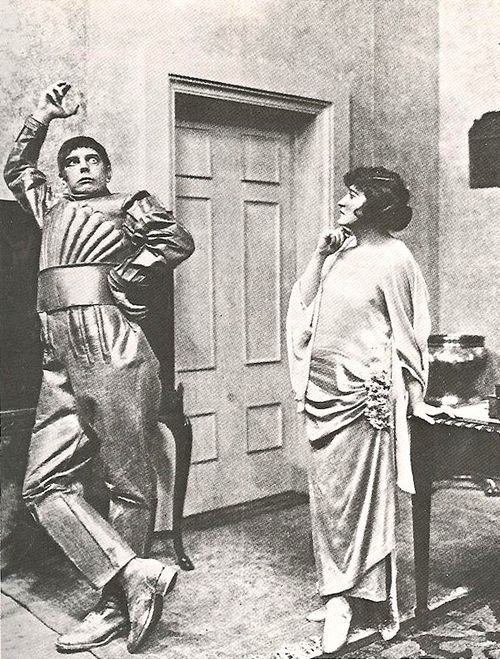In 1921, Czech playwright Karl Čapek premiered his latest work, R.U.R., narrating the downfall of humanity and the rise of machine entities. R.U.R. stands for Rossum's Universal Robots, a company producing artificial people to use for free labor. In Act I we are introduced to Helena, a social activist who is determined to free the robots from their chains. She aids in the robot rebellion which leads to the extinction of the human race. In my opinion, this short 3-act play contains a heavy commentary on class and religion.
a scene from the original play
While the robots are physically indistinguishable from humans, they are understood to be lacking any soul or conscience. This is why their labor can be exploited and they can be physically harmed without any consequence, as seen in Act I. This attitude towards the robots can be compared to how upper classes and large corporations have seen the working class throughout history: stripping away their humanity and profitting off their labor. Čapek's creation of the Robot entity was the result of the working conditions he was familiar with in Czechoslovakia at the time. It's no surprise to me that Čapek picked up on the decay of humanity in the modern economy.
There are also a number of religious themes and references in the play: for example, Rossum, who discovered the chemical to create life, intended to prove that God was unnecessary and nonexistent. Throughout the play as well there's a heated debate over whether or not the robots have "souls" in the spiritual sense. Their ability to communicate with each other so effectively and synchronize movements is compared to the Tower of Babel in the Bible, pointing to a dangerous rise of a new race. By the end of the play, two robots fall in love and are said to be the Adam and Eve of the new robot world. It could be that Čapek was responding to the way science and technology smudged out religion in the twentieth century.
Karl Čapek himself
To a modern reader, R.U.R. still contains many valuable insights on the state of humanity, perhaps now more than ever. In 1921, Čapek sensed the deterioration of humanity in the workforce and the threat of machines in our world. The greed of man along with the growth of technology gave rise to the creation of the "robot," which made it's first appearance in this unique and captivating play. Thanks for reading!!
-Ree